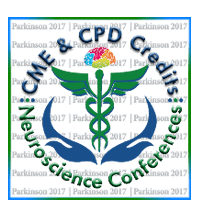
Srinivasan Avathvadi Venkatesan
DR.M.G.R.Medical University, India
Title: The impact of wearing off on quality of life in patients with Parkinson's disease
Biography
Biography: Srinivasan Avathvadi Venkatesan
Abstract
Introduction: By the year 2040, neuro degenerative disorders are expected to surpass cancer as the second most cause of death in the elderly. One of the most common neuro degenerative disorder is Parkinson’s’ disease with over 4 million victims identified in the world. Motor and non-motor symptoms tend to return during wearing off phenomenon in levodopa treated Parkinson’s patients. The development of wearing off is due to Parkinson’s disease progression and the rapid break down of levodopa in the body resulting in a feeling that levodopa effects are fading out. This results in the disturbances of the quality of life. In this study ten steps approach to improve quality of life and wearing off phenomenon are discussed: Disability and quality of life are assessed; research tools to assess quality of life; early signs and symptoms of wearing off; staging of Parkinson’s disease and the emergence of wearing off ; management of wearing off; impact of non-motor symptoms on HRQOL (Health Related Quality of Life); Parkinson’s disease well-being map and paper version and management of non-motor symptoms improved quality of life in Parkinson’s disease than motor symptoms; living a full life with Parkinson’s disease; helpful hints in daily life, managing stress with exercise, foot teeth care with diet and nutrition; and creative and complementary therapy.
Conclusion: Depression, fatigue, sleep problems and excessive day time sleepiness require special consideration when trying to optimize Parkinson’s management, due to their strong correlation with negative health status and HRQ-ol. Quantifying Parkinson’s symptoms provide an important basis for optimizing treatment and care.

